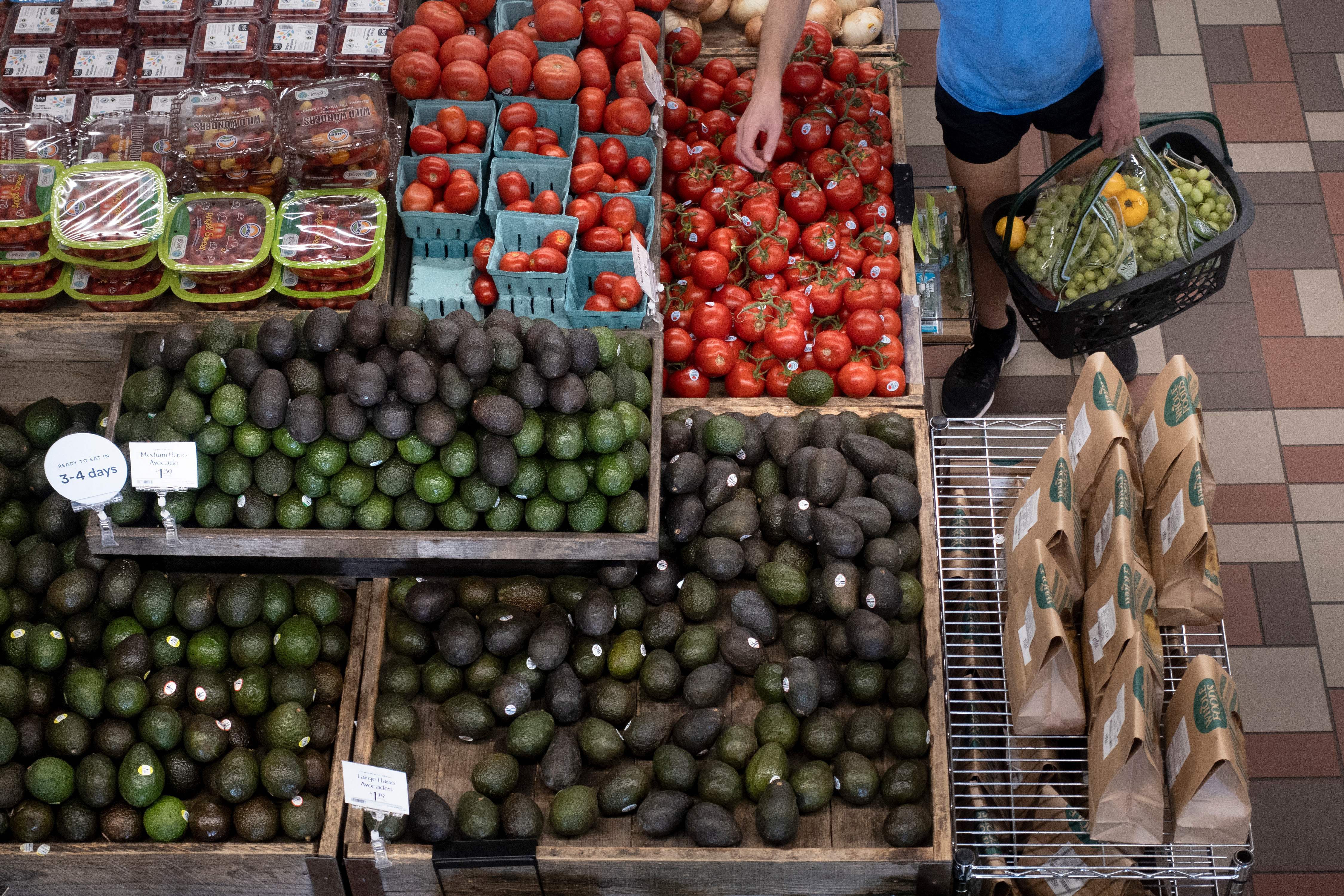The daily business briefing: August 16, 2021
The Biden administration prepares to increase food stamp benefits, United reroutes flights to avoid Afghan airspace, and more


A free daily email with the biggest news stories of the day – and the best features from TheWeek.com
You are now subscribed
Your newsletter sign-up was successful
1. Biden administration to increase food stamp benefits
The Biden administration is expected to announce Monday the largest permanent increase to food assistance benefits in history. Under the new rules, which will take effect in October, average benefits will increase by more than 25 percent over pre-pandemic levels, rising by $36 to $121 monthly per person. All 42 million beneficiaries will receive more. The changes don't need approval from Congress. Unlike other new spending intended to help people weather the coronavirus pandemic, these added benefits are intended to last indefinitely. Agriculture Secretary Tom Vilsack said the program provided a safety net, and its $79 billion annual cost helps "stabilize our democracy."
2. United reroutes flights to avoid Afghan airspace
United Airlines on Sunday rerouted its India flights to keep them out of Afghanistan's airspace after the Taliban seized Kabul and the country's government collapsed. "Due to the dynamic nature of the situation we have begun routing affected flights around Afghanistan airspace," said the airline, which serves New Delhi from its Newark Liberty International Airport hub and Chicago O'Hare International Airport, and Mumbai from Newark. The airline said it would continue to work with the Federal Aviation Administration and the International Air Transport Associated "to evaluate the situation and determine how we continue service to markets impacted."
The Week
Escape your echo chamber. Get the facts behind the news, plus analysis from multiple perspectives.

Sign up for The Week's Free Newsletters
From our morning news briefing to a weekly Good News Newsletter, get the best of The Week delivered directly to your inbox.
From our morning news briefing to a weekly Good News Newsletter, get the best of The Week delivered directly to your inbox.
3. China factory output slows, threatening global recovery
China on Monday reported that factory output and retail sales growth slowed sharply in July, fueling concerns that surging coronavirus infections were threatening the global economic recovery. Industrial production in China, the world's second-largest economy, rose by 6.4 percent in July compared to a year earlier, according to data from Beijing's National Bureau of Statistics released Monday. Analysts had predicted a 7.8 percent increase, after June's 8.3 percent rise. Retail sales rose by 8.5 percent, falling far short of the expected 11.5 percent increase. Retail sales jumped by 12.1 percent in June. Although China's economy is back to pre-pandemic levels, businesses now face supply bottlenecks and new coronavirus restrictions.
4. Hyatt to buy Apple Leisure for $2.7 billion
Hyatt Hotels Corp. confirmed Sunday that it plans to buy resort company Apple Leisure Group for $2.7 billion. Apple Leisure is owned by KKR and KSL Capital Partners LLC, a private-equity group specializing in travel and leisure. It was hit hard by coronavirus lockdowns and travel bans in 2020, although it has bounced back somewhat as restrictions were eased. The deal promises to boost the hospitality giant's resort-management portfolio, and give it a major provider of charter flights and vacation packages to Mexico, the Dominican Republic, Jamaica, and other Caribbean destinations. Apple Leisure manages the Secrets, Dreams, and Breathless Resorts & Spa chains. It also sells vacation packages under numerous brands, including CheapCaribbean.com and Apple Vacations.
A free daily email with the biggest news stories of the day – and the best features from TheWeek.com
5. Stock futures pull back after last week's all-time highs
U.S. stock futures fell slightly early Monday, pulling back from last week's record highs. Futures tied to the S&P 500 and the Dow Jones Industrial Average were down by 0.2 percent several hours before the opening bell. Both indexes closed at all-time highs on Friday. Futures for the tech-heavy Nasdaq were down by 0.1 percent. China reported Monday that industrial growth slowed in July, fueling investor fears that the spread of the highly infectious Delta variant of the coronavirus would slow the global economic recovery. "That is the reason why the market is a bit nervous today," said Andrea Carzana, a fund manager at Columbia Threadneedle Investments.
Harold Maass is a contributing editor at The Week. He has been writing for The Week since the 2001 debut of the U.S. print edition and served as editor of TheWeek.com when it launched in 2008. Harold started his career as a newspaper reporter in South Florida and Haiti. He has previously worked for a variety of news outlets, including The Miami Herald, ABC News and Fox News, and for several years wrote a daily roundup of financial news for The Week and Yahoo Finance.
-
 The ‘ravenous’ demand for Cornish minerals
The ‘ravenous’ demand for Cornish mineralsUnder the Radar Growing need for critical minerals to power tech has intensified ‘appetite’ for lithium, which could be a ‘huge boon’ for local economy
-
 Why are election experts taking Trump’s midterm threats seriously?
Why are election experts taking Trump’s midterm threats seriously?IN THE SPOTLIGHT As the president muses about polling place deployments and a centralized electoral system aimed at one-party control, lawmakers are taking this administration at its word
-
 ‘Restaurateurs have become millionaires’
‘Restaurateurs have become millionaires’Instant Opinion Opinion, comment and editorials of the day
-
 TikTok secures deal to remain in US
TikTok secures deal to remain in USSpeed Read ByteDance will form a US version of the popular video-sharing platform
-
 How will China’s $1 trillion trade surplus change the world economy?
How will China’s $1 trillion trade surplus change the world economy?Today’s Big Question Europe may impose its own tariffs
-
 Shein in Paris: has the fashion capital surrendered its soul?
Shein in Paris: has the fashion capital surrendered its soul?Talking Point Despite France’s ‘virtuous rhetoric’, the nation is ‘renting out its soul to Chinese algorithms’
-
 Will latest Russian sanctions finally break Putin’s resolve?
Will latest Russian sanctions finally break Putin’s resolve?Today's Big Question New restrictions have been described as a ‘punch to the gut of Moscow’s war economy’
-
 China’s rare earth controls
China’s rare earth controlsThe Explainer Beijing has shocked Washington with export restrictions on minerals used in most electronics
-
 The struggles of Aston Martin: burning cash not rubber
The struggles of Aston Martin: burning cash not rubberIn the Spotlight The car manufacturer, famous for its association with the James Bond franchise, is ‘running out of road’
-
 US to take 15% cut of AI chip sales to China
US to take 15% cut of AI chip sales to ChinaSpeed Read Nvidia and AMD will pay the Trump administration 15% of their revenue from selling artificial intelligence chips to China
-
 Is Trump's tariffs plan working?
Is Trump's tariffs plan working?Today's Big Question Trump has touted 'victories', but inflation is the 'elephant in the room'
